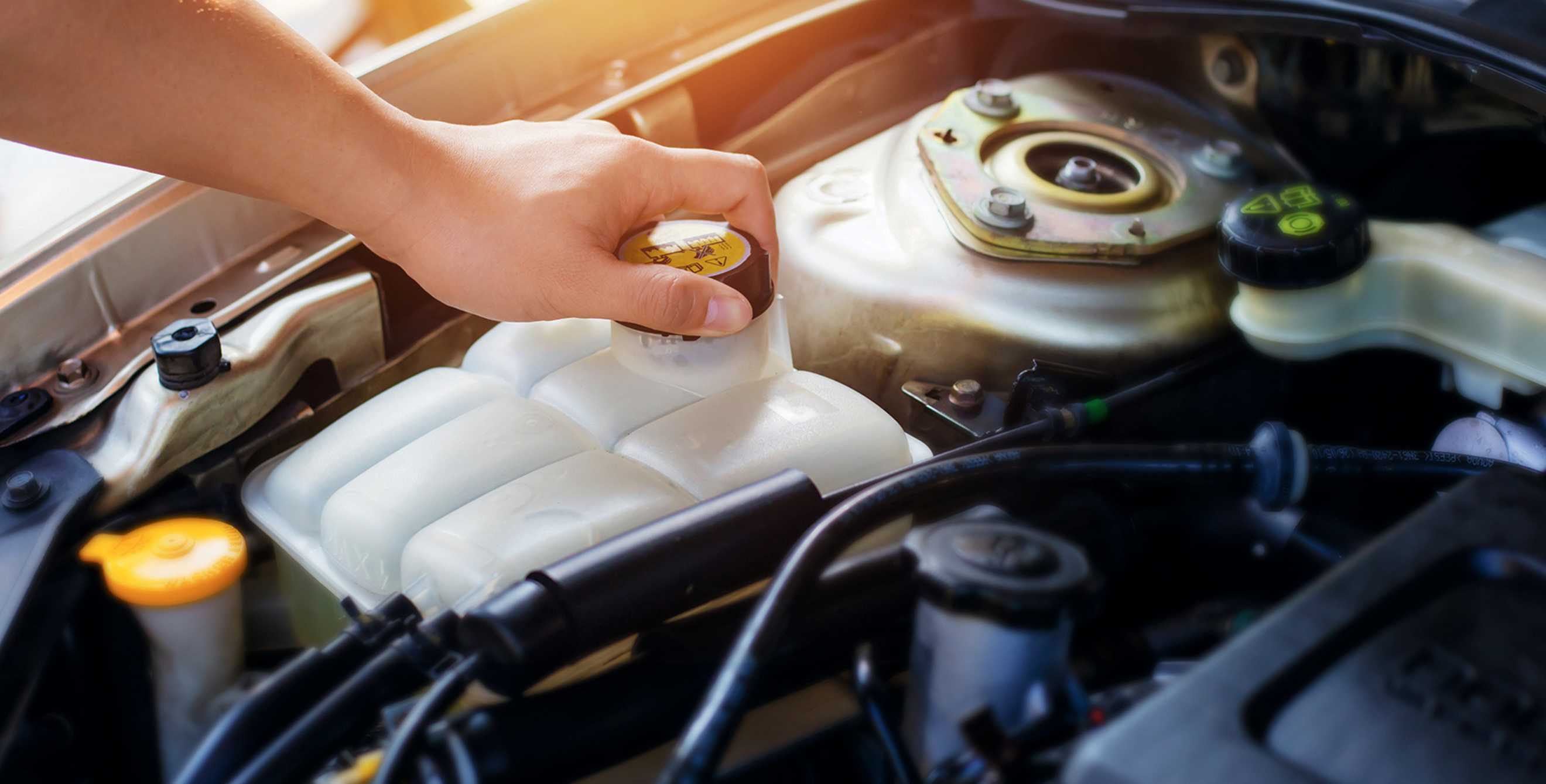
Is Your Car Ready for Summer?
The heat of the season is tough on vehicles. A little prep can help you steer clear of trouble.

Summertime, and the driving is easy—or so you'd think. The weather is good, the road is clear, and the windows are down. But the ease of the season can be a mirage: Its high temperatures and dry air can wreak havoc on your car. Here's how to keep your vehicle running cool.
Fill your fluids.
Due to evaporation, vehicle fluid levels can drop fast when the mercury rises. To help your engine run efficiently all summer, keep everything topped up: motor oil, transmission fluid, power steering fluid, brake fluid, and especially coolant. Anything below full can add stress to your car.
Test the charge.
While many people believe cold weather can cause battery problems, it's heat that really zaps batteries. Extreme temperatures, paired with vibration and increased load (hello, AC!), can cause batteries to break down, often without warning. Have a shop test your battery and give you a "state of health" report to estimate how much life it has left so you can catch problems before your car won't start.
Inspect belts and hoses.
Hoses move coolant between the radiator and the engine, and belts run pumps and fans that cool the whole system. But many of these parts are made of rubber compounds that can crack and blister in hot weather. Ask your mechanic to: check hoses for leaks, soft spots, and loose connections; examine belts for separating layers; and adjust or replace any that are showing wear.
Check the tires.
High temperatures make air expand, so overinflated tires may bulge. Underinflated tires can create excessive friction on already hot roads. Both extremes increase your chances of a blowout. So check your tire pressure whenever you get gas, and make sure it's within the range recommended by the manufacturer. You can usually find that recommendation in the car's owner's manual or on a sticker attached to the doorjamb on the driver's side. While you're at it, check the tread, too.
Update your emergency kit.
If you don't already have an onboard emergency kit stocked with jumper cables, road flares, water, nonperishable food, and first aid supplies, get one. For summer, add an umbrella to shade yourself from the sun.
AAA Auto Repair can help keep your vehicle running cool.